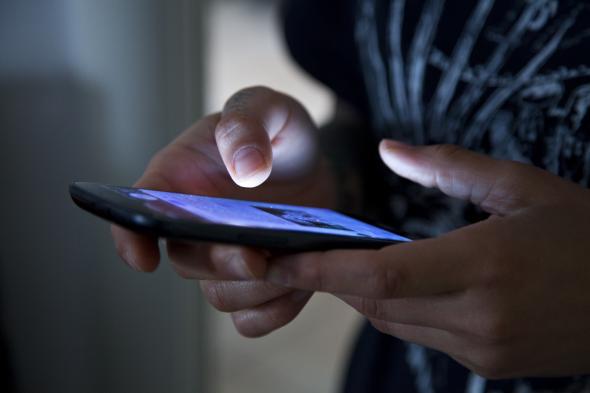What should a victim do after a rape? An app released last year and that made the Twitter rounds on Tuesday suggests that, as soon as you’ve reached a safe location, you should “tell your story” to your phone screen while it records video and audio. The program encrypts the time- and geo-stamped narrative so that the victim can’t access it or change it, but can transfer it to “the appropriate authorities” if he or she decides to report the rape. The app bills itself as a way to “record contemporaneous evidence” that “eliminates…credibility questions” if a victim comes forward after a significant amount of time has passed.
The app is made by an organization called We-Consent and bears the unfortunate name of I’ve-Been-Violated™. Its cringe-worthy moniker isn’t the only thing that’s questionable about it. For one thing, teaching people that they should open an app after a rape doesn’t seem like the most realistic or sensitive advice. For another, the app reenacts the mistrust of victims that it claims to prevent: Even if its method of taking video and audio from an extremely vulnerable moment and encrypting it offline is intended to silence the doubts of the “appropriate authorities,” it also perpetuates the message that a survivor can’t be trusted not to meddle with her account.
I’ve-Been-Violated™ isn’t an outlier—it’s part of a thriving market of apps that claim to have the best idea for solving the problem of sexual assault. NPR’s Tovia Smith wrote a story in August about the growing business sector that’s making hay from efforts to end sexual assault on college campuses. “That scares me,” Charlene Senn, a sexual assault prevention expert at the University of Windsor in Ontario, told Smith at the time. “Money is being poured into getting those programs that are homegrown, and usually that’s a bad idea.”
That’s not to discount the more promising ideas for combating rape that have emerged from the tech space. Cosmopolitan has written up a list of some solid options, including Circle of Six (which won the White House’s Apps Against Abuse contest), which sends an SOS message to a preset list of six emergency contacts with a single tap. Another program, Callisto, allows a victim to write up a report of a rape and then file it into a “matching” database, from which it will only be sent to authorities if another rape by the same perpetrator is reported.
The best sexual assault apps seem to be the ones that drastically speed things up and that monitor data in a way that analog reporting and counseling can’t. But technology alone can’t change the human dynamic at work here. The NPR piece describes another of We-Consent’s products, an app that “records students agreeing to sexual activity”:
A breathy female voice with a British accent asks the user to “say the name of the person with whom you would like to have sexual relations.” Then the app announces to the other person, that so-and-so “would like to have sexual relations with you” and asks for consent. If all goes well, the app ends with the sultry female voice announcing, “Have Fun!”
For cases where consent is given and then revoked, We-Consent’s briefing package describes a third app, called What-About-No™:
The person who wants to communicate the “NO” message activates the app on his or her phone. After a few seconds delay (to allow time for the phone owner to show the phone’s display to the other party), a policeman appears on the screen and states “You were told NO! A video of that no message has been recorded and saved. What is it about the word no that you do not understand? No means No!” Thereafter, a stop sign appears notifying the viewer: “A video of you watching this ‘No’ message has been safely uploaded to the cloud.”
When I was in college, the university handed out miniature stop signs at a freshman orientation on sex and consent. I never heard of anybody using them. Though it’s not impossible to imagine that those stop signs—or this app—might provide a funny diversion in some serious situations, I’d wager there are many more instances of rape or assault where such a thing would be useless, or could backfire. No app can take the place of better sexual education, better disciplinary processes and policies, and, of course, old-fashioned empathy and respect™.
